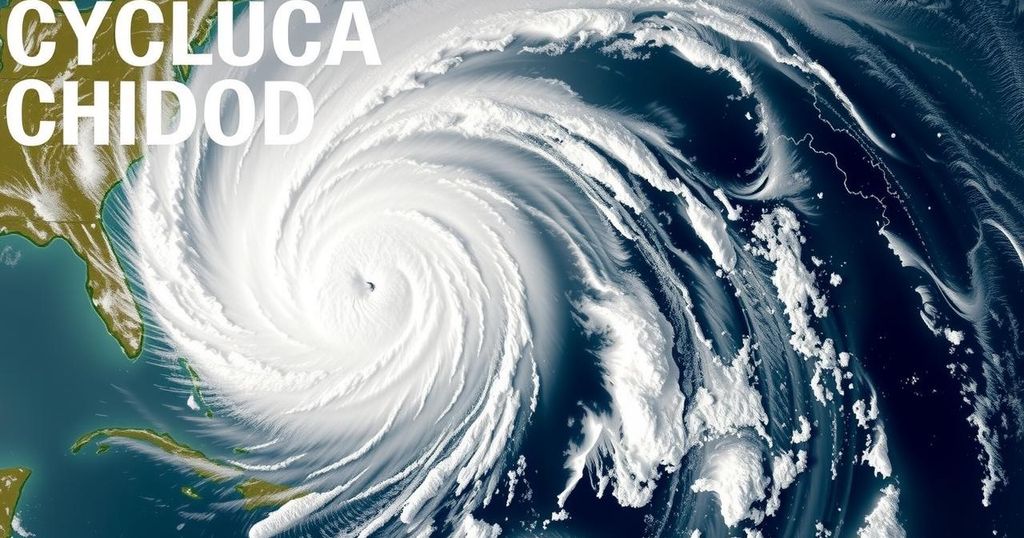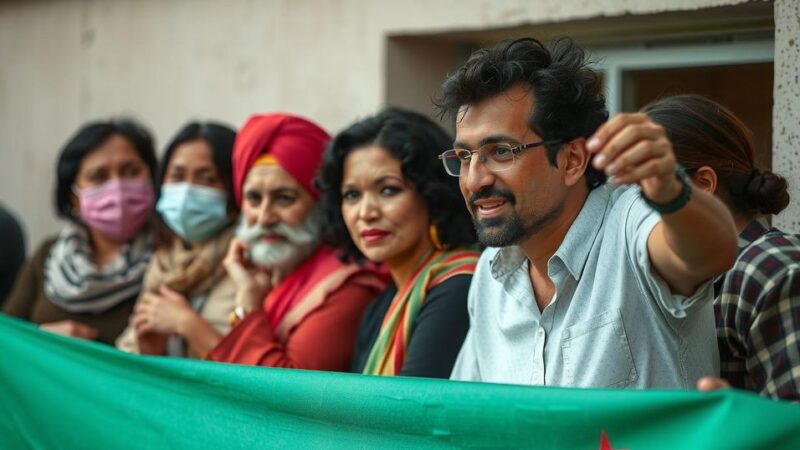Cyclone Chido has struck Mayotte, causing significant damage and loss of life, with winds reaching over 220 kph. The situation is dire, with emergency services mobilizing amidst fears of rising casualties. Comoros and mainland Africa are also bracing for the storm’s effects, amidst concerns over flooding and public health risks, highlighting the challenges posed by climate change in vulnerable regions.
Cyclone Chido has wreaked havoc in the French territory of Mayotte, leading to multiple fatalities, although exact figures remain unconfirmed as emergency response teams assess the damage. The cyclone, characterized by wind speeds exceeding 220 kilometers per hour (136 miles per hour), has left substantial destruction in its wake, with public facilities, homes, and the airport reported as severely damaged. The island, which houses a population exceeding 300,000, faces grave challenges as officials warn that the death toll may rise significantly once the situation is fully assessed. Meanwhile, Mayotte remains under red alert, with residents advised to stay sheltered safely as emergency services mobilize to assist those affected. Additionally, neighboring Comoros has issued heightened alerts due to the storm’s impact, coordinating rescue efforts for stranded fishermen and closing essential services to ensure public safety.
As Cyclone Chido progresses toward mainland Africa, Mozambique braces for adverse effects, with predictions indicating that up to 2.5 million individuals may be affected. Authorities in Malawi and Zimbabwe are also preparing for potential flooding and evacuations, drawing from experiences during previous cyclones that resulted in extensive casualties. This season has seen an increase in cyclonic activity attributed to climate change, further straining the resources of vulnerable regions in southern Africa, which bear a minimal contribution to the crisis yet grapple with its severe ramifications.
Cyclone Chido exemplifies the increasing severity of tropical storms that have plagued southern Africa, particularly affecting impoverished nations with limited resources. The region is currently facing its cyclone season, which spans from December to March, during which multiple storms have historically led to severe humanitarian crises. Previous cyclones, such as Idai and Freddy, have not only caused extensive loss of life and infrastructure destruction but also heightened risks of waterborne diseases like cholera. The phenomenon is exacerbated by climate change, raising alarms for affected nations.
In summary, Cyclone Chido has significantly impacted Mayotte, leaving a trail of destruction and numerous casualties yet to be fully assessed. With emergency responses underway, neighboring regions prepare for the cyclone’s further approach, underscoring the ongoing challenges faced by southern Africa due to climate-related disasters. As the season unfolds, the cycle of devastation from cyclones continues to highlight the need for proactive measures to mitigate their increasing intensity driven by climate change.
Original Source: www.cnn.com







